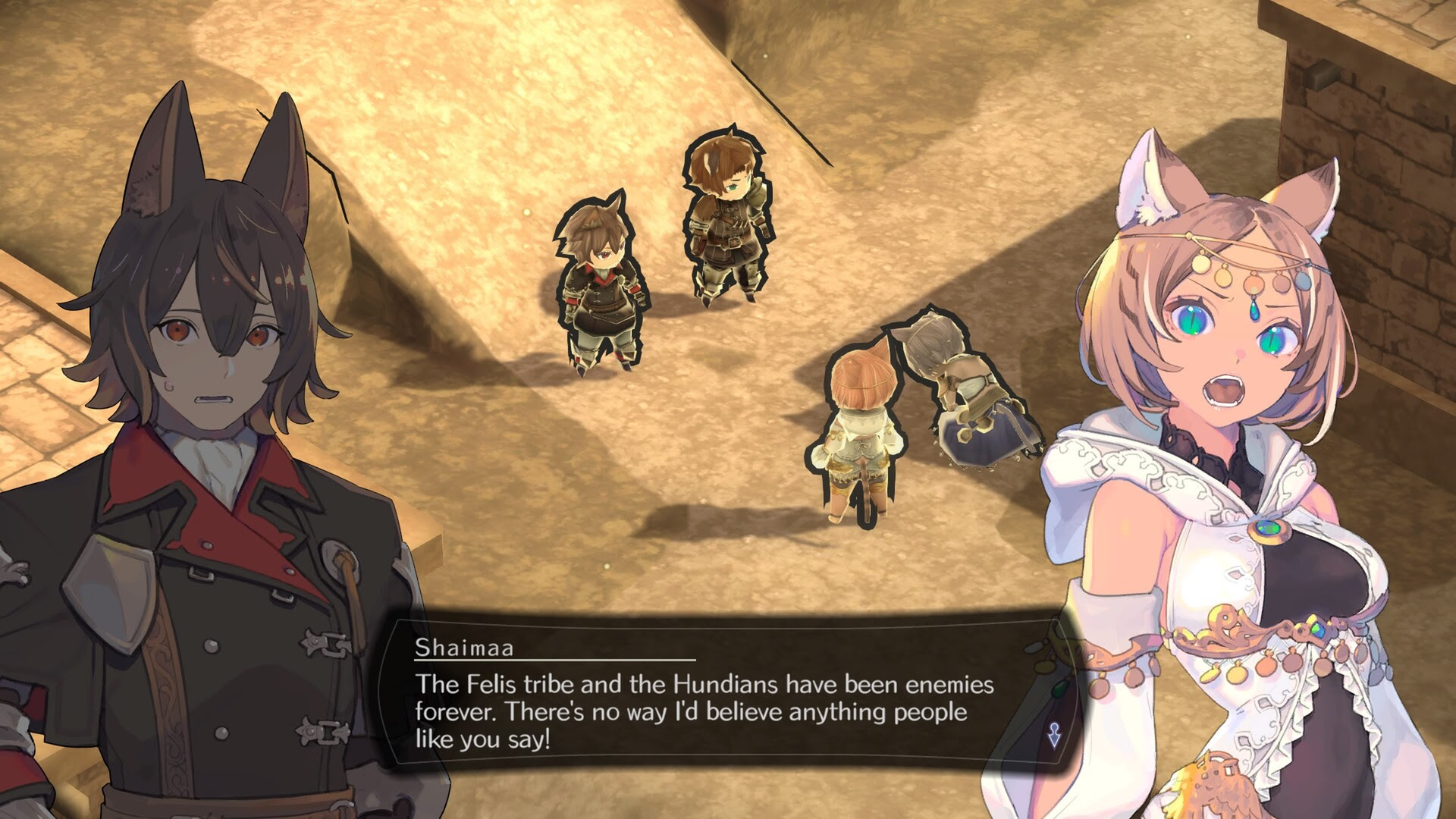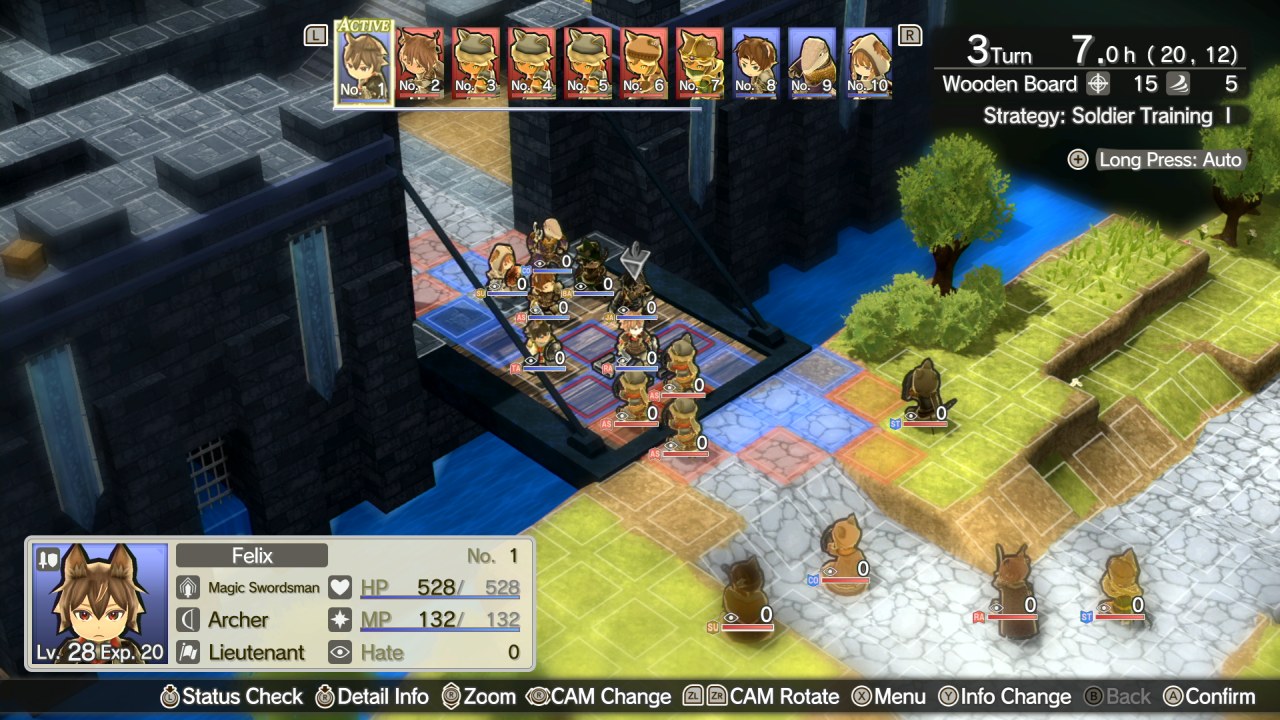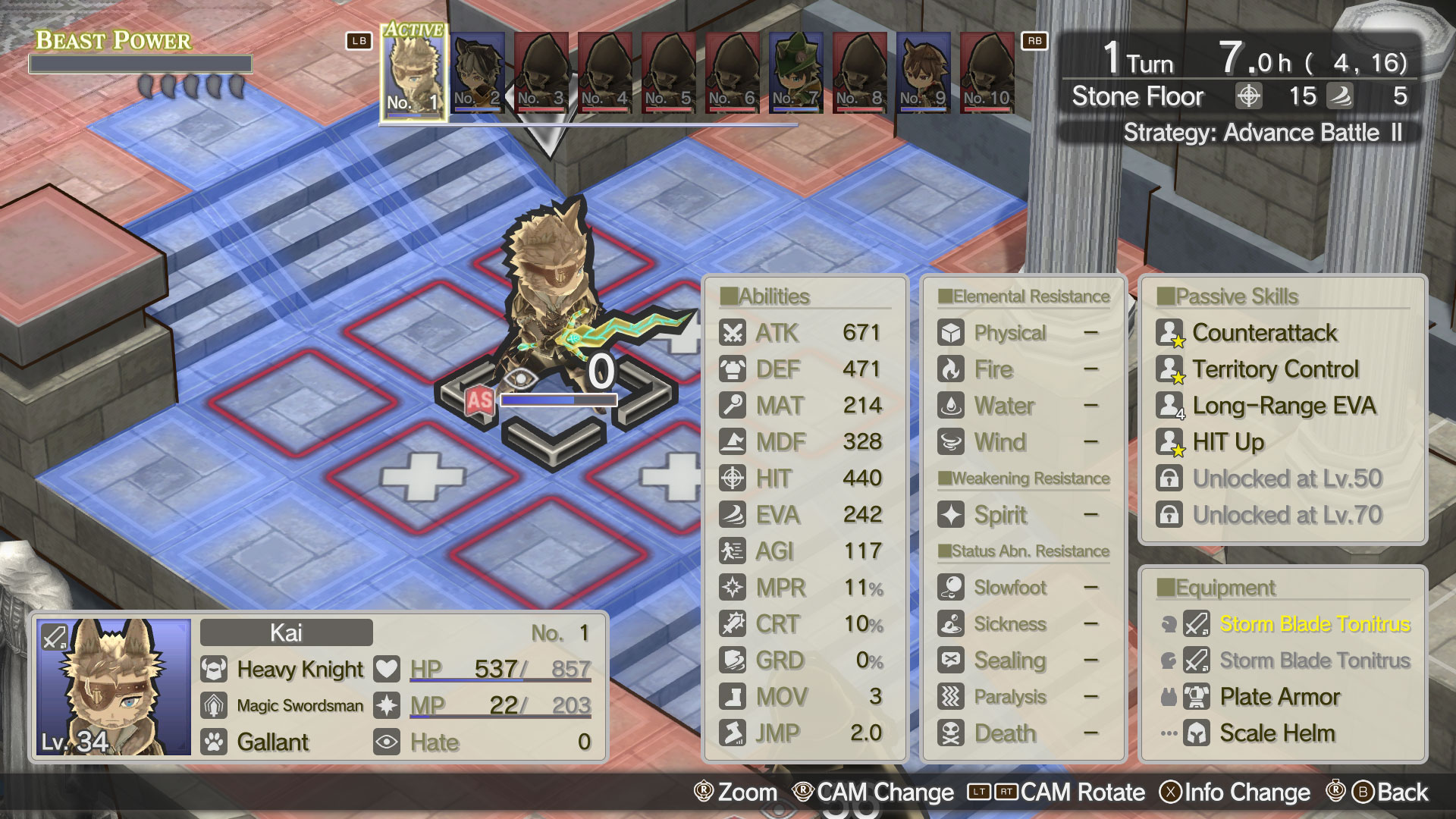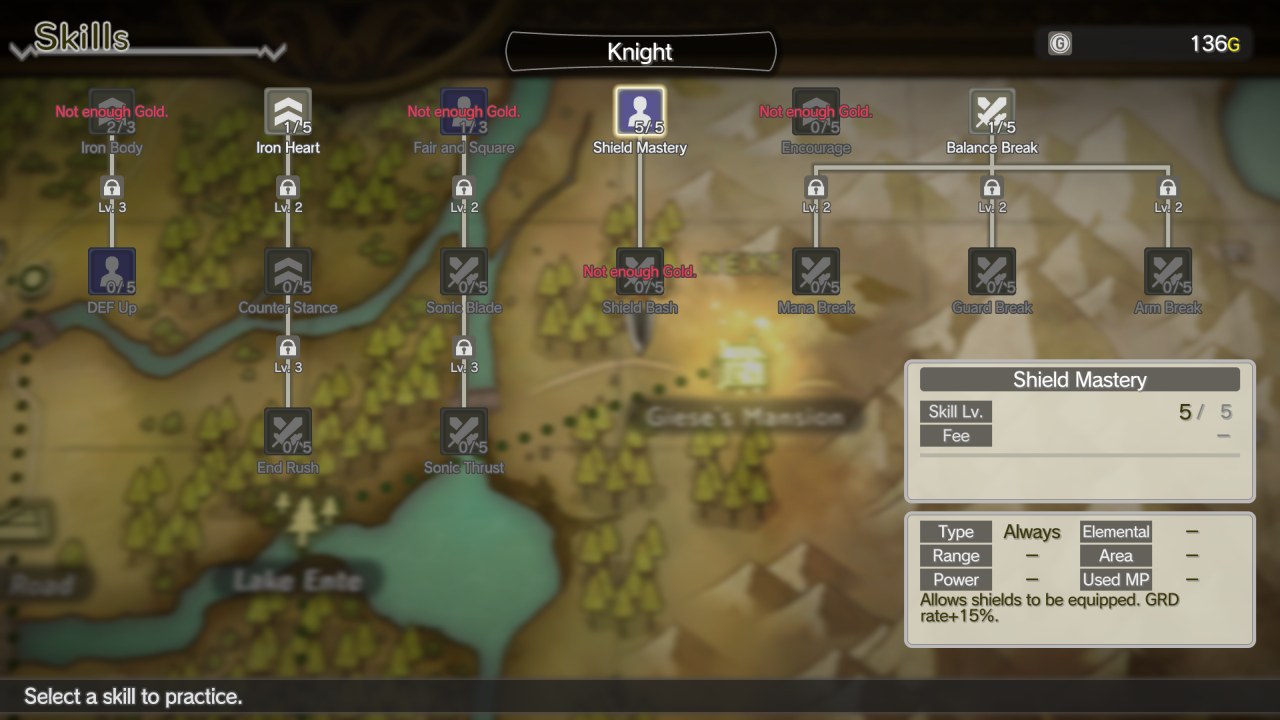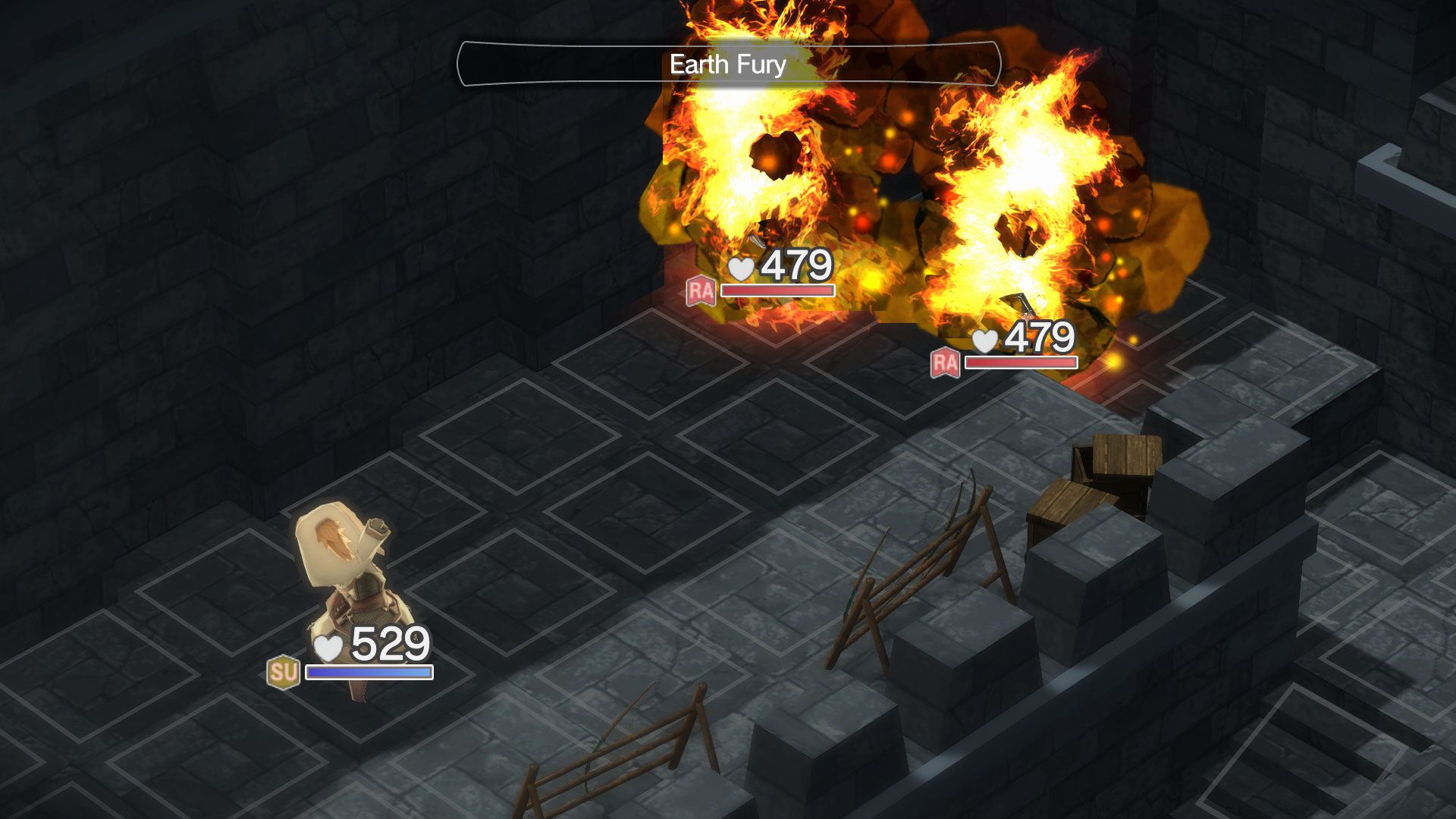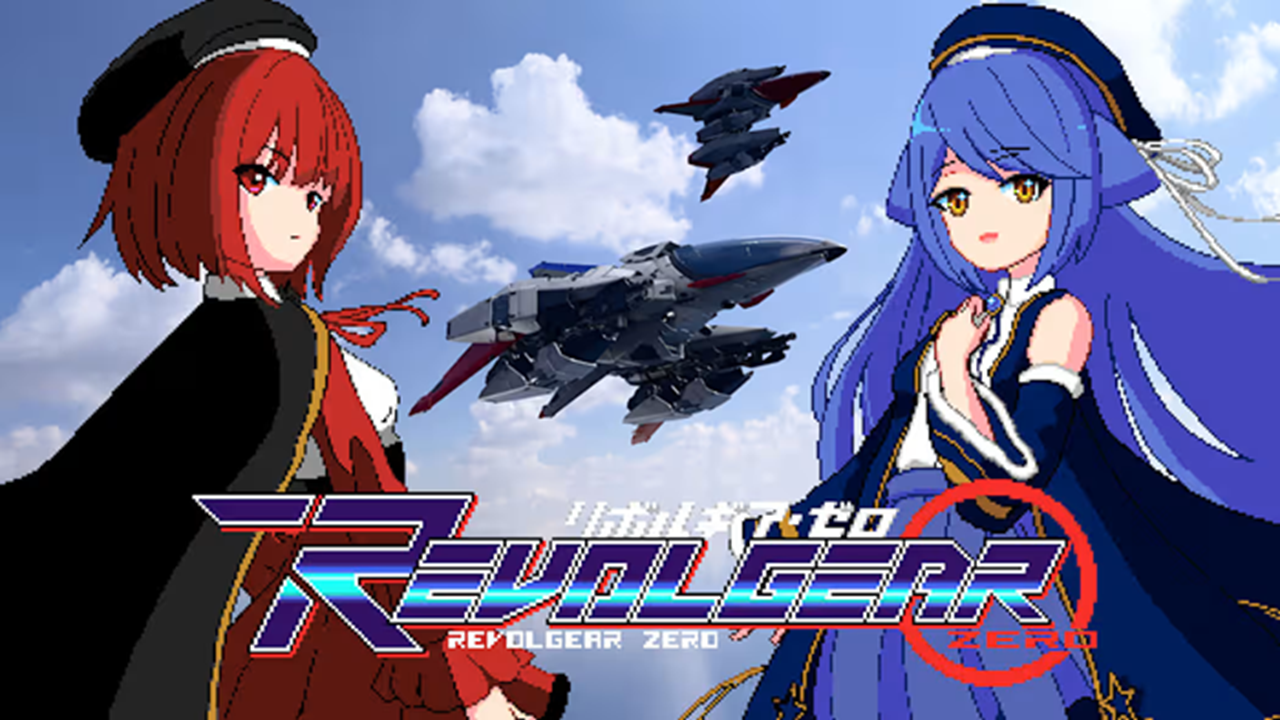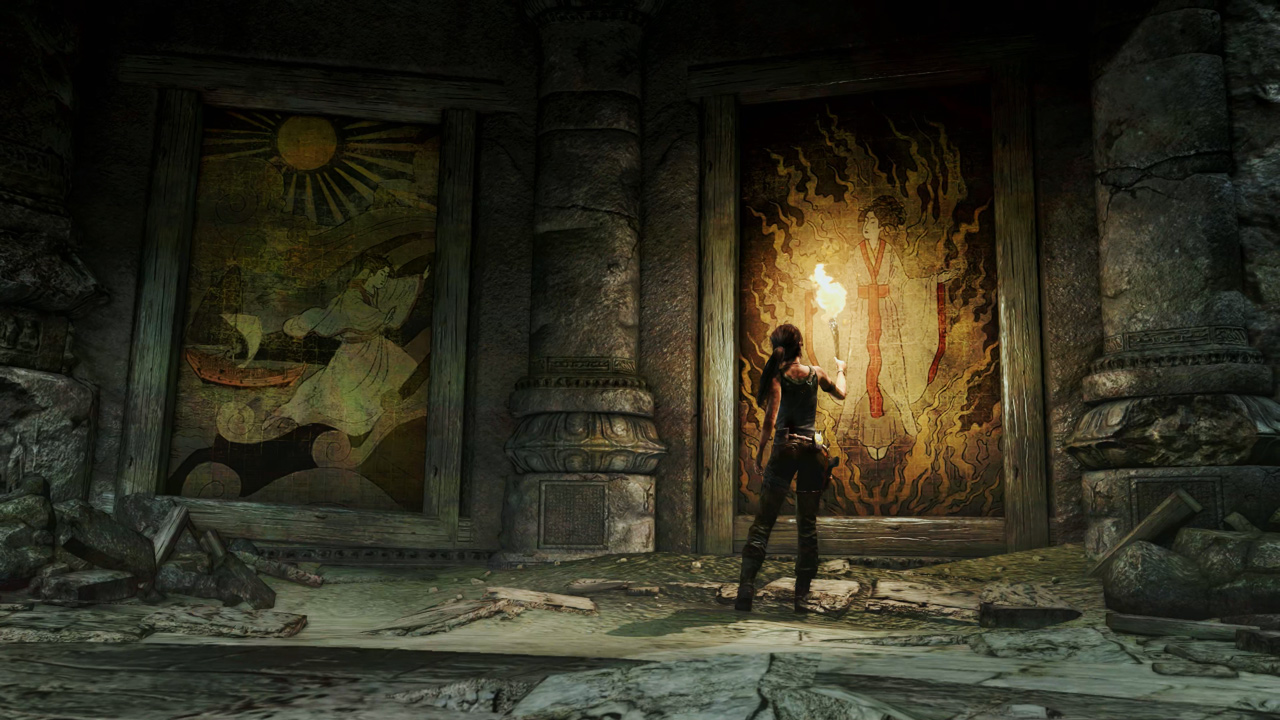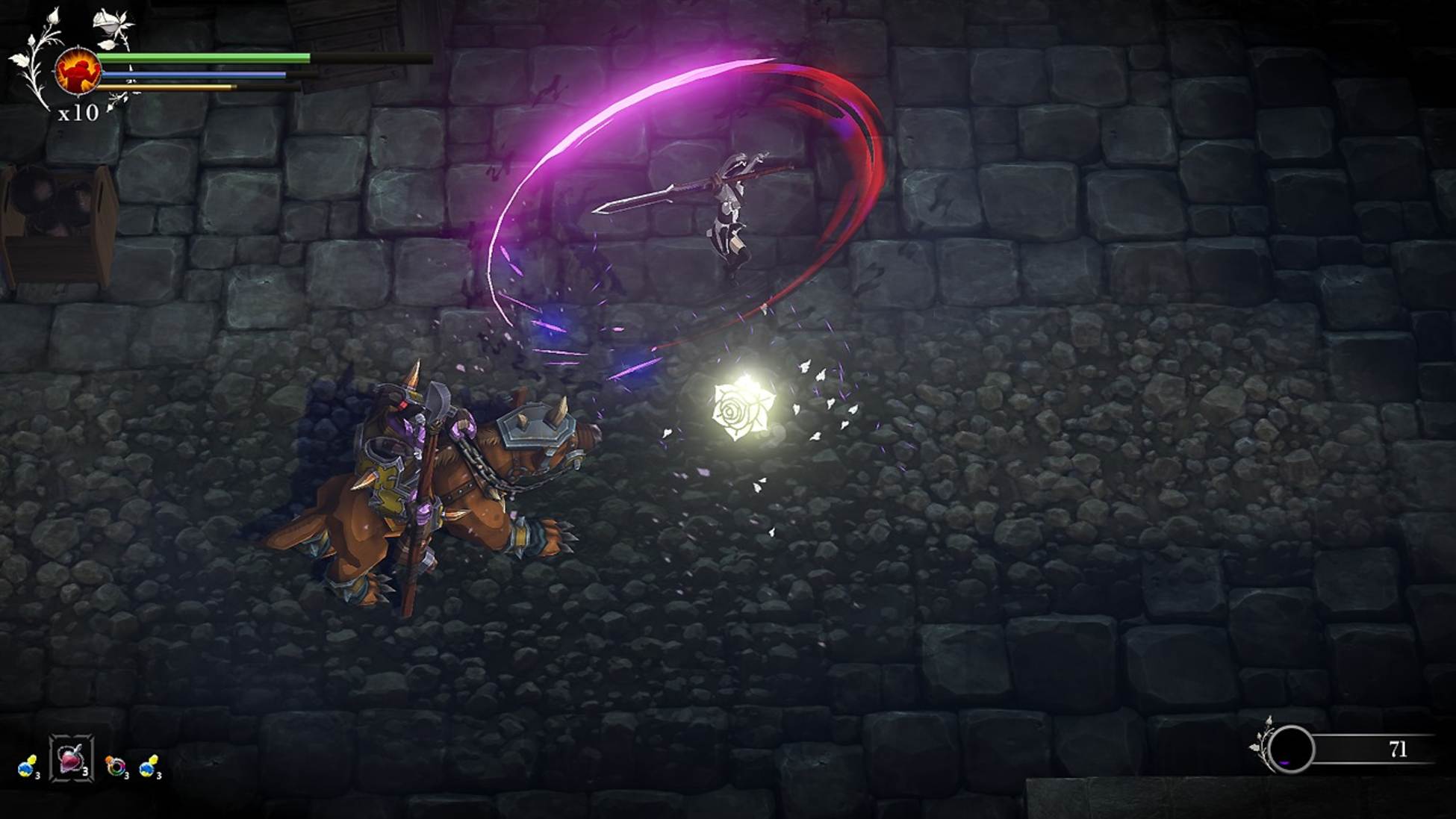Cross Tails is a pleasant surprise for numerous reasons. It’s a pleasant surprise as a release from KEMCO, a publishing company that has brought us numerous fun but often formulaic retro JRPGs. It’s a pleasant surprise from Rideon, developers of the competent but somewhat forgettable Mercenaries series. And it’s a pleasant surprise as an isometric, turn-based, strategy RPG.
Cross Tails focuses on two separate but intertwining stories. At the start, players will decide if they want to control Felix (from the Kingdom of Ravenfurt) or Shaimaa (of the Republic of Hidiq). What separates the kingdoms? Ears and tails. Although the characters look human, the Ravenfurts exhibit canine physical attributes, while Hidiqs are more feline. Is it any wonder they’ve always been on the brink of war? There’s also a reptilian nation, Dralbo, just to shake things up a bit.
No matter how you side in this cats vs. dogs tale, the story quickly reaches a point where a Hidiq town is attacked, sending the conflict to a boiling point. If you play as Felix, you know the Ravenfurts aren’t responsible. If you play as Shaimaa, you aren’t so sure. Either way, the stories of the two central characters will continue to overlap as they individually discover just what’s going around them.
It’s a typical JRPG plot line that’s meant to be experienced in separate playthroughs. Rather than complete one and then the other, I found it interesting to flip between save files at the points when the stories intersected. Felix, for example, reaches the village attack a few battles into his story. With Shaimaa, however, it’s her first. This approach to the narrative made for a unique method of storytelling I found compelling.
That’s important because other story aspects aren’t that compelling. Despite the crossing tales approach to Cross Tails, the plot still feels very “been there, done that.” That’s not to say it isn’t engaging, but it doesn’t feel as fresh as some of the other turn-based JRPGs I’ve played lately.
Also, although the main characters and their counterparts are distinctive and memorable, Cross Tails relies on faceless recruits to round out your combat parties. This approach helps to keep the central characters in focus, but it also means you won’t care about a lot of the people you’re taking into battle.
If you don’t care about the soldiers, turn-based strategy gamers will care about those battles. This, as it should be, is where Cross Tails shines. Combat takes place on the type of isometric battlefield that’s often compared to Final Fantasy Tactics. A more accurate comparison in this case would be God Wars: The Complete Legend, both visually and technically. The background graphics are colorful, smooth, and detailed, allowing the heavily outlined (and chibi-esque) characters to stand out effectively. The camera controls are a bit too sensitive, but that doesn’t really impact turn-based gameplay.
Battles start with a quick overview of the map, followed by selecting the placement of your available soldiers. As they’ll each have different abilities—including how far they can move and how easily they can reach higher areas—getting them in the right spot to be quickly effective is important. Order is determined by AGI, but the first couple rounds can often be used to get your team in an effective offensive or defensive formation.
Cross Tails quickly overwhelms you with numerous skills and abilities to select in battle, and you’ll need to rack up MP to use these advanced attacks and buffs (or play in easy mode, which starts you off with plenty of MP).
You also have access to highly effective beast powers, or BP, but these come in limited supply. Players can even determine the characters’ faith for various buffs.
The most intriguing variation from similar games, however, comes via Hate. This is like aggro, making opponents more likely to attack a character the more he/she attacks, heals, or uses abilities. In other words, the more troublesome a character is on the battlefield, the more the enemy will go after that character. It becomes an effective strategy, as you can fade soldiers with poor defense into the background and trust the enemy will leave them alone. Of course, that doesn’t always mean they will. So it goes in tactical RPGs.
Another big change is Cross Tail’s reliance on money. Skills, abilities, weapons, armor, recruits, job classes…all are upgraded or acquired through cash, so you really have to manage your money well. And considering there are over 30 classes from which to choose—each with its own combat strengths and weaknesses—even the simplest upgrade decisions can prove stressful.
Unfortunately, getting the money you need requires revisiting previous maps for only slightly modified battles. Often, you’ll have to do this right after completing the map the first time, making progression a real slog. This is another reason I liked switching back and forth between save files for the different paths; it helped to keep things fresh when engaging in two or more fights in one sitting.
With a lesser game, I might’ve eventually given up on it. But there are enough rewards in Cross Tails to push you through. It certainly helps that the intricate party preparation and tricky battles are rewarding to overcome.
But it’s equally important that the whole package is cohesive and logical. The cash-based system makes sense once you get used to it, and each new element, character, and ability feels like a logical extension of what you’ve done so far. A stronger story and livelier dialogue could help move things along, but Cross Tails’ competence and unique diversions from the norm should hold your attention for at least one playthrough. You just have to decide: cats or dogs?

